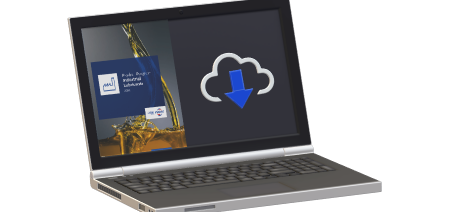Cleaners
Cleaning in the metalworking industry
During the manufacture of metal or other components, all substances and particles which may detrimentally affect subsequent production processes or the later use of the part must be removed from the component’s surface.
During manufacturing processes, the surfaces of components come into contact with various substances which are intended to ease machining but which can leave residues which, in turn, may cause malfunctions and even process breakdowns in subsequent production processes. In addition, machining operations generate abrasion.
Finally, the contaminants which inevitably gather on the surfaces of components during storage and which must be removed prior to their subsequent use should be mentioned.
Depending on the application, a differentiation is made between:
- Interim cleaning during machining processes
- Cleaning prior to heat treatment and surface coating
- Cleaning as part of maintenance
Cleaning methods and products
It is only seldom possible to remove all the contaminants from the metal surfaces of a component in one operation. Often, the cleaning process requires a number of physical, chemical and physical-chemical steps.
Apart from purely mechanical procedures such as blasting and grinding, cleaners in the form of purely physically-active organic solvents or chemically-active aqueous solutions are used. Their effect can be assisted with physical procedures such as ultrasound.
There is a distinction between the following cleaning methods:
- Immersion or dip cleaning (ultrasonic cleaning)
- Spray cleaning
- Aqueous cleaners for manual cleaning and cleaning with steam cleaners or high-pressure washers
- Solvent-based cleaners
Cleaning tanks / component racks
In many companies, the great majority of transport containers are also used as the containers for cleaning lines. This has the advantage that the components do not need to be additionally handled and the transport containers are also cleaned. However, as a rule, the containers are designed for the demands of transport and not for the demands of cleaning. As a result, the design of the containers sometimes hinders or prevents the optimal cleaning of components.
In the meantime, the design of component racks plays an important role in the development of cleaning concepts so that the interaction between the cleaning line and the cleaners used provides satisfactory results.
> Get an overview about fundamental principles for optimally-designed cleaning racks.
RENOCLEAN
In addition to an extensive consulting, FUCHS offers everything from a single source. Perfectly matched products together with a comprehensive spectrum of industrial cleaners like:
- Neutral cleaner
- 1-Component products
- Builder + surfactants
- System cleaner
- Solvents
- Special products
- Water-based corrosion protection
- Maintenance cleaner
- Personal care


